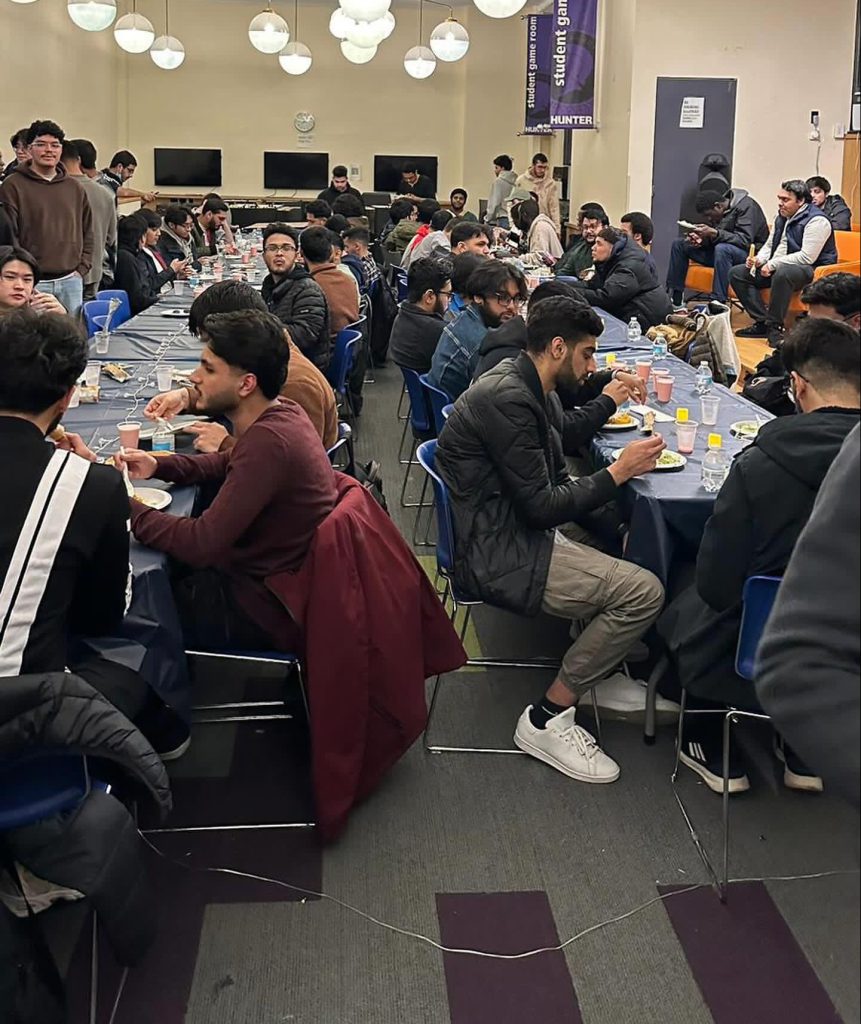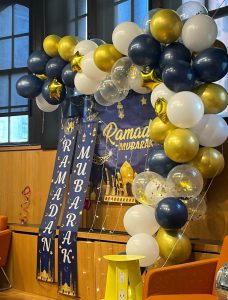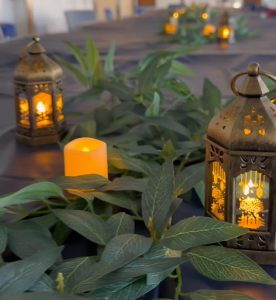
Photo provided by the Pakistani Student Organization.
When Muslim students at Hunter College fast for Ramadan, multiple things can happen.
There’s the occasional lightheadedness and drained energy, and some are at a loss for where to break the fast while on campus. Then there’s the bonding, something many students refer to as their favorite part of the experience given the strong sense of camaraderie they feel with other fasting students.
Practicing Muslims have been fasting from sunrise to sunset from March 10 until Eid al-Fitr marks the end of the lunar month, which falls on April 10 this year. Fasting is an act of religious observance and is meant to encourage reflection on a person’s relationship with God, promote discipline, and for observers to understand the plight of those less fortunate than themselves. Many also consider the month to be a time for bonding among the Islamic community.
“With so many Muslims inspired to participate in religious activities during Ramadan, connections feel easier to build and more wholesome,” said Senior Nawshin, who declined to use her last name in fear of religious discrimination post-graduation. “For instance, I was able to connect with two strangers just last week almost immediately by bonding over fasting and being Muslim, a connection that I might not have made outside of Ramadan.”
The senior said that she considers fasting students attending Hunter College to be luckier than others as there is a strong community of Muslims at Hunter.
“So many aspects that can make fasting as a student difficult, such as a possible sense of isolation, can be alleviated through camaraderie and understanding within such a large student population,” said Nawshin.
The lack of food and water impacts students physically, said Senior Rida Akhlaq.
“Sometimes I can get physically exhausted or lightheaded after physical activity like going up powered-off escalators,” she said.

Senior Nabiha Subzwari also said “her sleep schedule gets worse, making it difficult to do school work.”
Though Subzwari’s energy levels may be down during Ramadan, seeing other students fasting also reminds her of how people can be brought together.
“I remember the purpose of my fasts, and honestly how cool it is to be able to even do them,” she said.
Subzwari said that she prioritizes getting work done on days she does not have to be on campus so that she has time to rest. Nawshin said that she also changed her typical schedule of studying at night to mornings and mid-afternoons so that she could focus the brunt of her energy on her assignments and work before exhaustion from the lack of food catches up to her.
Another issue is where students can break their fast.
“I break my fast at Hunter all the time and during my class on Mondays and Wednesdays,” said Akhlaq.
Nawshin said that she had a particularly hard time breaking her fast in 2023 as one of her classes ran right through iftar, causing her to break her fast in class with water and a few dates and then having to commute home after.
“I was barely with family and friends for iftar and felt very isolated in my struggle…and community is what instills the spirit of Ramadan in me the most,” said Nawshin.

Photo provided by the Pakistani Student Organization.
Given the large Muslim community on campus, student organizations have gotten involved in the festivities. This year, the Muslim Student Association and Pakistani Student Organization hosted their own iftar events where students could get free food and beverages to break their fast on campus.
“The hardest part is if you have a professor who is not understanding nor willing to make religious accommodations even though it’s literally a right students have,” said Akhlaq.
With prayer also being a major tenet of the month, students often flock to the Hunter MSA to pray, although Akhlaq said the MSA can be a little congested sometimes so finding a space to pray can be difficult.

